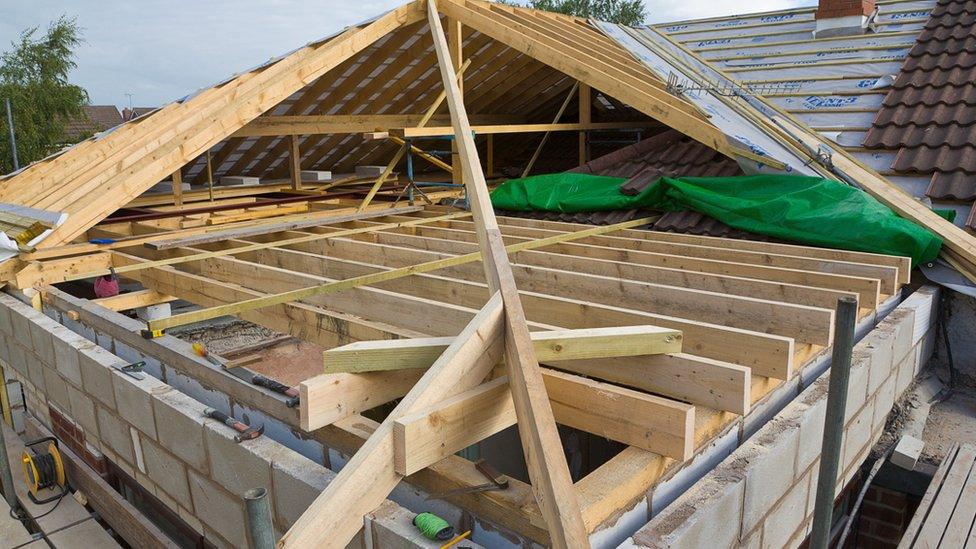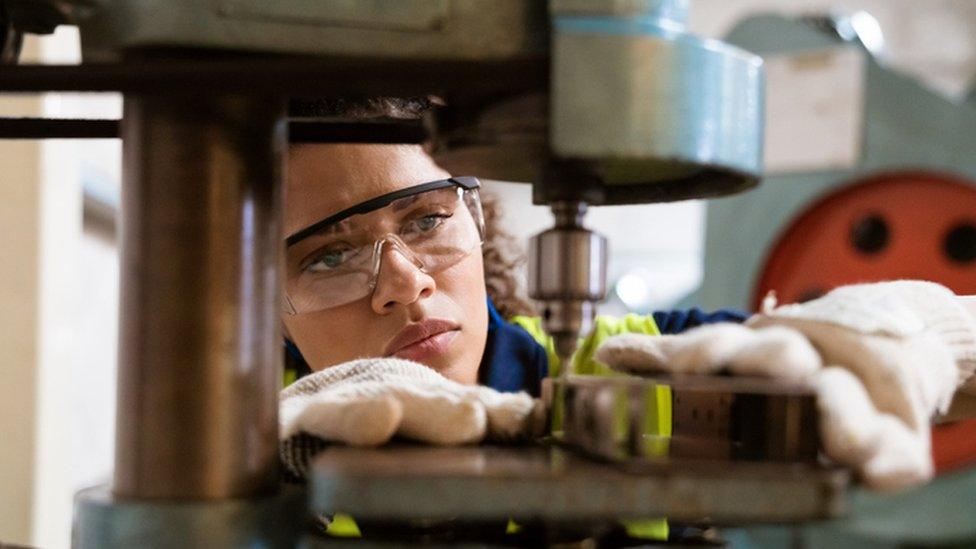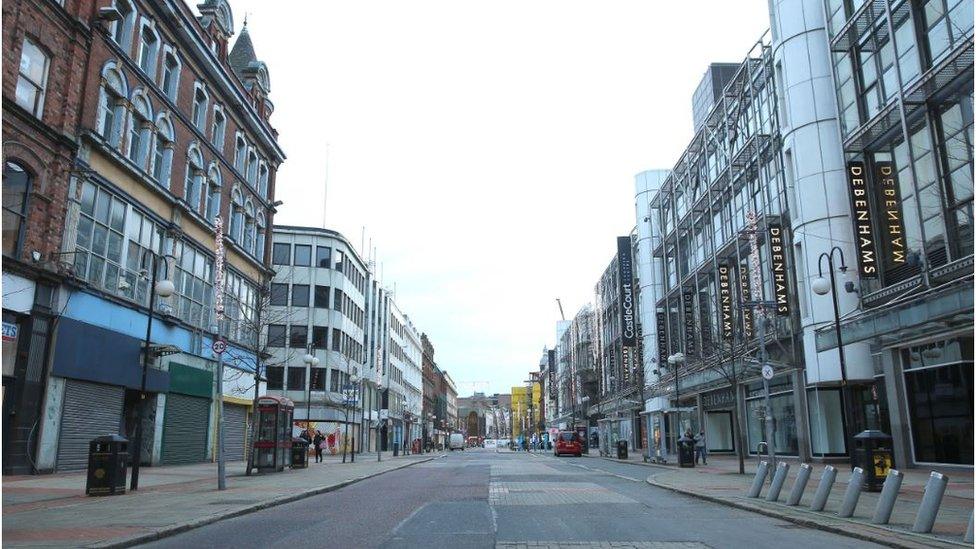Price rises 'restricting business activity in Northern Ireland'
- Published
- comments

Construction was the sector which reported the steepest decline in new orders, according to the survey
Price rises are restricting business activity in Northern Ireland and contributing to a decrease in new orders, an Ulster Bank survey suggests.
The bank's monthly survey of private sector activity is considered to be a reliable indicator of the economy.
It asks firms across the private sector about matters such as staffing levels, order books and exports.
Last month, the survey suggested both input costs and output prices rose at new record rates.
Mark Spence of the Construction Employers Federation told BBC Radio Ulster's Good Morning Ulster programme that the price of cement was up 20% in one month, with steel and timber doubling in price over the last year.
Mr Spence said many public sector construction projects are being delivered at a loss due to the fixed price of contracts being undermined by rising prices.
"That gives us very serious concerns about the stability of the market," he said.
"We've seen one or two failures and we hope we don't see too many more, but it is inevitable when the prices are fixed but the costs are increasing all the time."
Ulster Bank's chief economist in Northern Ireland, Richard Ramsey, said inflation and supply chain pressure are starting to bite on business performance.
"This isn't surprising given the incoming news flow regarding energy costs and firms are passing these costs onto their customers by raising the prices of their goods and services at a record rate," he said.
"Perhaps the most telling indicator is new orders which shows that incoming business fell for the second month running with all sectors bar manufacturing posting a fall in new orders."

Manufacturing has been the only industry not to record a fall in new orders, the survey indicates
Construction was the sector which reported the steepest decline, with firms citing price increases as a factor putting off customers.
The one positive indicator that improved in October was employment, with firms recruiting at the fastest rate since May.
The survey indicated that manufacturing was the only industry not to record a fall in new orders.
Stephen Kelly from Manufacturing NI said the second half of the year has been strong for businesses.
"All of our manufacturers, particularly those who are exporting, are reporting extremely strong interest from customers," he told the BBC.
However, Mr Kelly said the sector is still facing three key issues.
"There are costs, both input costs and what customers are willing to pay, there's uncertainty around the long-term status of the protocol and there is an acute lack of people," he said.
"They can't get the staff they require to meet the orders that they have."
Related topics
- Published30 September 2021

- Published13 July 2021

- Published8 March 2021
